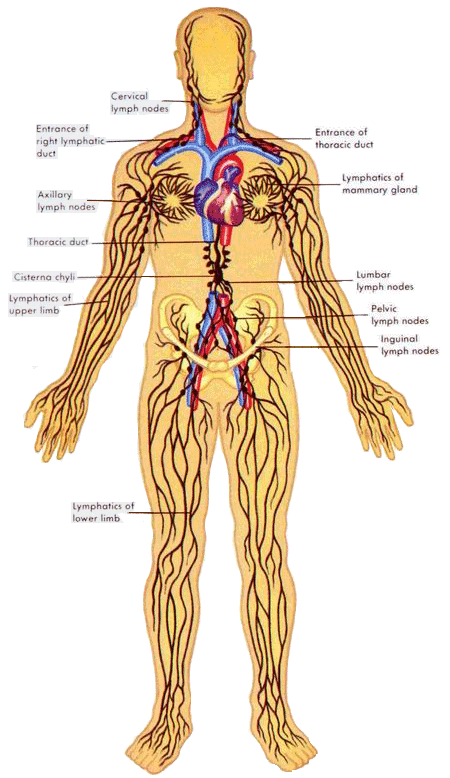Understanding the lymphatic system


The lymphatic system consists of organs, ducts, and nodes.
It transports a watery clear fluid called lymph. This fluid distributes immune cells and other factors throughout the body.
It also interacts with the blood (circulatory system) to drain fluid from cells and tissues.
The lymphatic system contains immune cells called lymphocytes, which protect the body against antigens (viruses, bacteria, etc.) that invade the body.
Main functions of lymphatic system:
|
-to collect and return interstitial fluid, including plasma protein to the blood, -to defend the body against disease by producing lymphocytes -to absorb lipids from the intestine and transport them to the blood |
"Lymphatics are found in every part of the body except the central nervous system.
The major parts of the system are
Other organs, including the heart, lungs, intestines, liver, and skin also contain lymphatic tissue." gorhams.dk